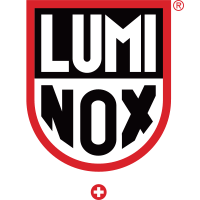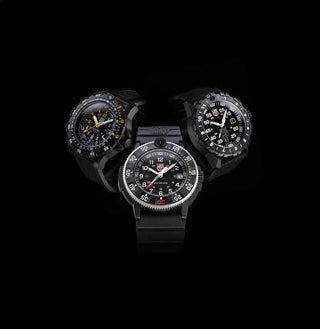MONDAINE is the Swiss watch brand that is famous for transforming the iconic Swiss station clock into a design that people can wear on their wrists, hang on their wall or place on their desk. But alongside their high recognition factor, these wrist watches have another key attribute: sustainable production. Far from being a recent attempt to keep up with a contemporary trend, sustainability has been part of Mondaine Watch Ltd corporate philosophy for over 25 years. How did this come about? And what goals is the company still pursuing? Co-owner André Bernheim answers these questions in an interview published by the Tages Anzeiger in their sustainability special edition in December 2019.
André Bernheim: There is growing demand from consumers for sustainable products nowadays. How relevant is this issue for your company?
Sustainability is part of our corporate culture and our brand identity. And of course, we've also noticed that this topic finally attracts a lot more attention. That's a welcome development - but it has some negative consequences as well. It's unfortunate that concepts like "ecology" and "sustainability" have become buzzwords that many companies adopt to embellish their image. But some of those firms show little - if any - genuine commitment to the cause. And in the watchmaking industry too, it's my personal view that not enough is being done.
To what extent is MONDAINE different?
We've had an ecology officer since the early 1990s: my brother Ronnie held this post at first, and then I took over. So this issue is established as a matter for our corporate management. To take one example: in 1992, we collected waste metal from a scrap heap in Zurich. We had this material melted down in Switzerland, and then we used it to manufacture metal cases for our watches. We recycled over ten tonnes of used metal during this project, for which we were honored with the Alp Action Award. Admittedly, that didn't bring about global change - but even back then, we wanted to show that an SME such as ours can play its part in sustainability. And if we can do it, the large companies ought to be able to manage it too. We were considerably ahead of the times with our sustainability concept; Retailers and consumers were still turning a deaf ear to it in those days.
In 2017, MONDAINE launched the essence collection – with the focus on sustainable materials. What was involved?
We broke new ground with the MONDAINE SBB Swiss railway clock design with our essence line and in terms of ecology, we deliberately went one step further. 70 percent of the cases for our essence watches consist of natural materials – ricinus (wonder tree plant) with the addition of glass powder, to be precise. 50 percent of the strap is made from the wonder tree oil too. According to choice, we also offer straps made of recycled PET bottles with a cork lining, and almost 100 percent of the packaging consists of recycled PET bottles. And a really cool touch is that this watch pouch serves later on as a second use as a pouch for a smartphone or sunglasses. We were already producing watch straps from recycled PET five years ago, and we are using cork – also natural raw material – in other MONDAINE collections as well. We are constantly researching other natural and more ecological materials. This is what we call: Better is Better, step by step becoming a more sustainable brand. I'm therefore of the opinion that a company should go beyond merely integrating the sustainability concept into its products.
So where else can sustainability be implemented?
As a non-listed SME with our own development department, good connections with component manufacturers and our own watch production facility in Biberist (Solothurn, Switzerland), we very deliberately make use of opportunities to pursue sustainability as an integral element of our corporate goals. One example that demonstrates this: the photovoltaic system on the roof of our Swiss factory, which we put into operation in September 2019. Its 600 m 2 of solar panels produce clean power, making us about 70 percent independent of electricity from outside sources. All Swiss Made Mondaine Watch brand watches from are produced with this solar power quota. But as you'd expect, we're also active in many other areas with the aim of becoming even more sustainable. We are calling our company mission: WE CARE.
What exactly are you doing?
We believe that great achievements can also become possible by making large numbers of small-scale adjustments and improvements. As well as taking various steps in house, we've defined specific sustainability goals for the future. One of the core goals is to steadily make our packing materials and watch packaging more sustainable – for instance, by using less material and choosing more environment-friendly materials with less volume. At the same time, we're continuing our search for more sustainable materials that we can use to manufacture our watches. We are also examining our entire supply chain flow, and looking for ways to improve it. We will achieve continuous improvement, and we'll reduce our ecological footprint. For this reason, we have also launched the first watch recycling scheme in Switzerland.
Watch recycling
That's right. Because it's a paradox that in Switzerland, the country of watches, you can return almost everything for recycling – except watches. So, consumers who want to dispose of one or more watches is welcome to send them to our Swiss factory. Mondaine will even take back watches from other manufacturers – but not plastic watches in that case, because it's often not possible to dismantle them. We take the watches apart and pass the components on so they can be recycled as ecologically as possible. Will we change the world by doing this? No. But it is a step towards cradle to cradle, and each step counts to support our environment. If it works well in Switzerland, we will expand this initiative with all our distributors worldwide. Once again, we want to show that something like this is possible - and if we can do it, large companies should certainly be able to manage it. Taken together, all these steps will then generate a real impact.
TA Switzerland, Jan 2020

